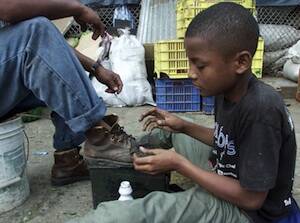A U.N. Development Program report on Latin America and the Caribbean finds that despite economic growth during much of the past decade, distribution of per capita income in Latin America is nearly as inequitable now as it was 20 years ago. In fact, Latin America is the most unequal distributor of income in the world, with an inequality index 18 percent higher than that of sub-Saharan Africa. Only 9.3 percent of Panama’s nonindigenous population is poor, but more than half of indigenous Panamanians and those of African descent live in poverty. Such disparities are similarly high in countries like Mexico, Bolivia, Guatemala, Paraguay, Brazil and Peru. Even more insidiously, poverty passes from generation to generation in the same households partly because a lack of education limits future employment opportunities. If countries really want to break the cycle of poverty, experts say, they must change their policies to address these internal inequalities.
Failure to Break Cycles Of Poverty
Show Comments (
)
Comments are automatically closed two weeks after an article's initial publication. See our comments policy for more.
The latest from america
Los Angeles Archbishop José H. Gomez was one of several community leaders who joined to open the Family Assistance Program, aiding those affected by recent ICE raids.
On Friday, Pope Leo XIV issued a statement on the theme "Migrants, missionaries of hope."
In Steven Spielberg’s “Close Encounters of the Third Kind,” an ordinary electrician has a transcendent encounter—with U.F.O.s, not God.
Many of my acquaintances have given up “reading about something that didn't happen.” But fiction has long-term and concrete value, both mentally and socially.








